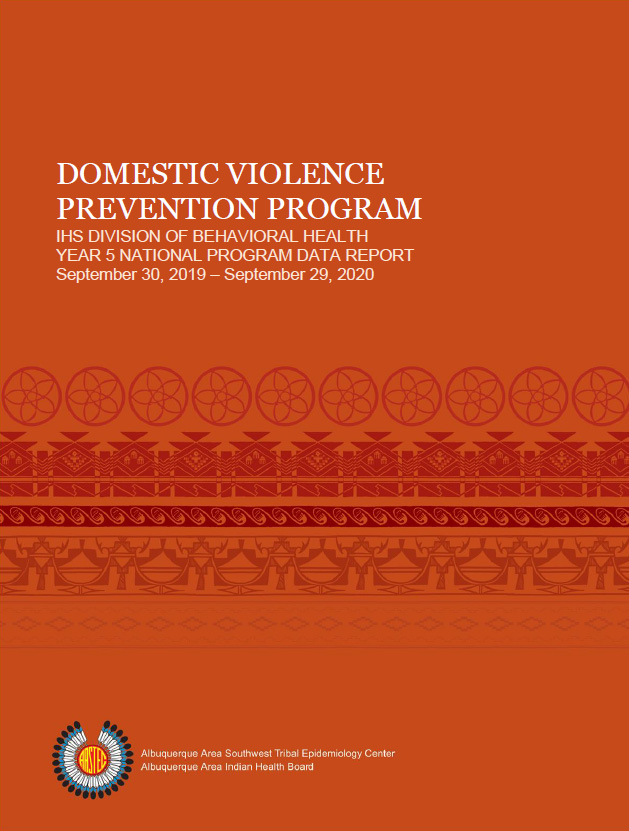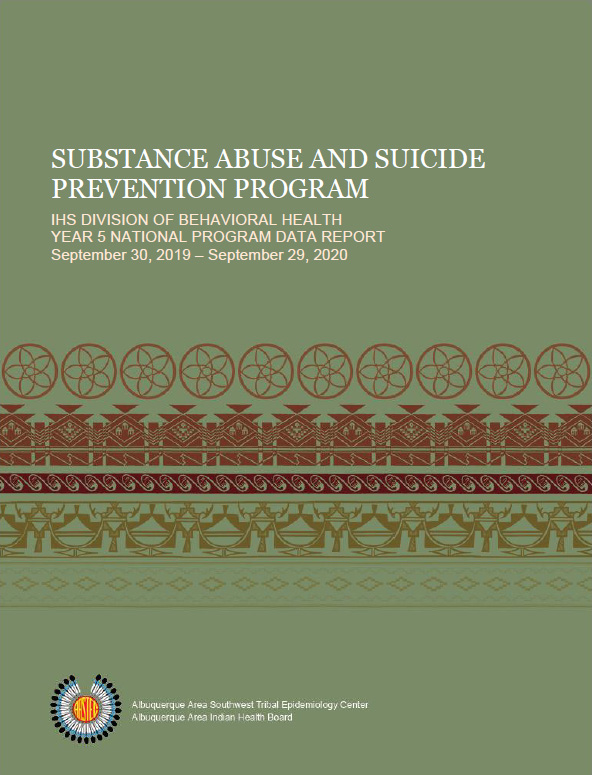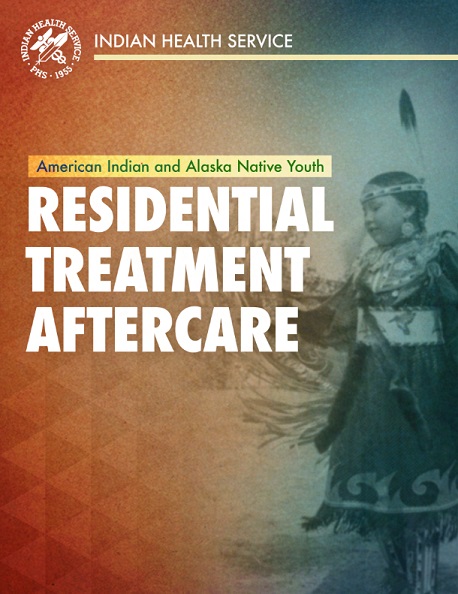Reports
IHS Behavioral Health Analytics performs national, regional, and local evaluations and analyses to support Tribes, IHS, and other interests in their planning and decisions, as they may affect the psychological health development and risk mitigation among American Indian and Alaska Native people and their communities. These reports represent significant cooperation among Tribal partners, policy makers, IHS leaders, universities, and American Indian and Alaska Native researchers. None of these reports establish laws or policies, rather they examine major strategies to make useful observations, define notable trends, and make recommendations for policies, programs, and protocols.
Program Evaluations
YRTC Aftercare Evaluation Report [PDF 3.7 MB]
To examine the future capacity of Youth Regional Treatment Centers, DBH examined two post-inpatient aftercare pilot projects to determine their capacity and requirements for services among American Indian and Alaska Native youth. The report highlights the need for digital innovations that are accessible during and after inpatient treatment.

At the end of each program year, Domestic Violence Prevention project partners submitted annual data as non-digital templates. For purposes of the national data reports, the data were reproduced in digital formats for analyses. The reports summarize the data to provide a record of the work performed by the project partners. The annual reports reflect changes made to programming and data collection. The final six-year trend report analyzes the data elements that were consistent across years, providing the reader insights into the national program over time.
- DVP Results from Year One [PDF 2 MB] (September 30, 2015-September 29, 2016)
- DVP Results from Year Two [PDF 1.9 MB] (September 30, 2016-September 29, 2017)
- DVP Results from Year Three [PDF 2.3 MB] (September 30, 2017-September 29, 2018)
- DVP Results from Year Four [PDF 4.8 MB] (September 30, 2018-September 29, 2019)
- DVP Results from Year Five [PDF 3.1 MB] (September 30, 2019-September 29, 2020)

At the end of each program year, Substance Abuse and Suicide Prevention (formerly MSPI) project partners submitted annual data as non-digital templates. For purposes of the national data reports, the data were reproduced in digital formats for analyses. The reports summarize the data to provide a record of the work performed by the project partners. The annual reports reflect changes made to programming and data collection. The final six-year trend report analyzes the data elements that were consistent across years, providing the reader insights into the national program over time.
- SASP Results from Year One [PDF 2 MB] (September 30, 2015-September 29, 2016)
- SASP Results from Year Two [PDF 1.9 MB] (September 30, 2016-September 29, 2017)
- SASP Results from Year Three [PDF 4.1 MB] (September 30, 2017-September 29, 2018)
- SASP Results from Year Four [PDF 2.2 MB] (September 30, 2018-September 29, 2019)
- SASP Results from Year Five [PDF 2.7 MB] (September 30, 2019-September 29, 2020)
Analyses
Journal Articles
Mental Health Outcomes Among American Indian and Alaska Native U.S. Army Soldiers: A Serial Cross-Sectional Analysis – Military Medicine, Volume 188, Issue 7-8, July/August 2023
Racial and Ethnic Differences in Encounters Related to Suicidal Behavior Among Children and Adolescents With Medicaid Coverage During the COVID-19 Pandemic – Research Letter, Adolescent Mental Health; Jama Pediatrics, June 26, 2023
Partner Tools
National Data Coordinator Service Portal
The National Data Coordinator Service Portal serves Tribal partner organizations and American Indian and Alaska Native (AI/AN) leaders in their collection and storage of digital, project-level data in support of multiple projects. The portal provides public access to video-based user training and a ticketing system for access support. The portal is compliant with HIPAA security requirements. Each partner has a unique account, with convenient means of updating, reviewing, and downloading their data, as well as designating account-specific access to individual users. The DBH National Data Coordinators work with federal program officers to minimize the data collection burden by optimizing the commonality of data elements into an integrated data dictionary. The portal administration is managed through a contracted partnership between DBH and the Albuquerque Area Southwest Tribal Epidemiology Center.
National Analysis Engagement Network
The National Analysis Engagement Network serves Tribal partner organizations and American Indian and Alaska Native (AI/AN) leaders in their organization, distribution, and access to relevant analyses. The network provides a digital, highly-responsive environment for promoting and discovering analyses across disparate sources. The software support of the network includes natural language processing for reading and tagging content, and then increasingly aligning the tags to the user experience, which accelerates discovery of relevant material. The network supports the information needs of Tribal consultations, AI/AN researchers, and health system planners, among other potential users. The DBH National Data Coordinators work with federal program officers to refine document formats and entries. The network administration will be managed through a contract, scheduled as a fiscal year 2024 project.



